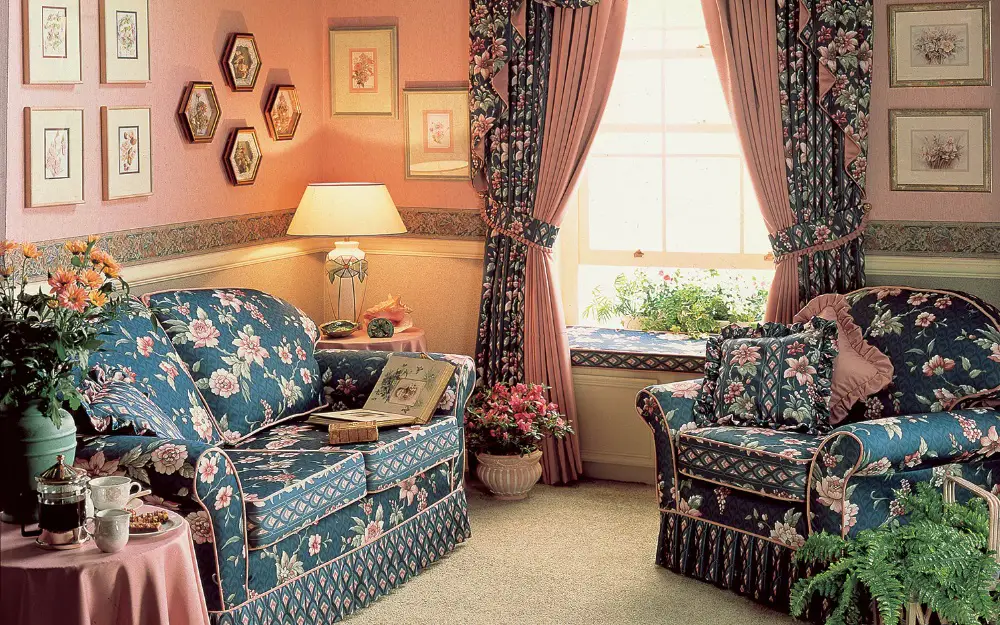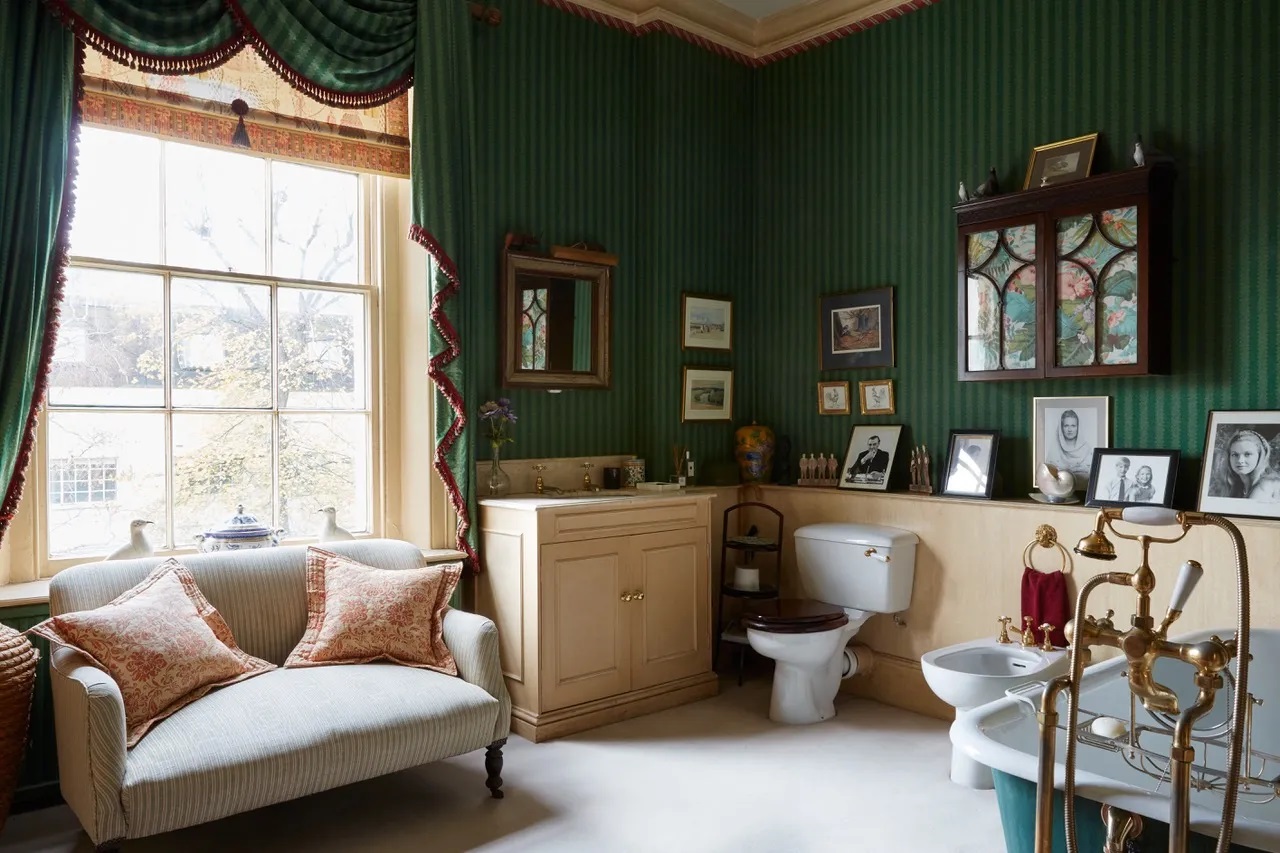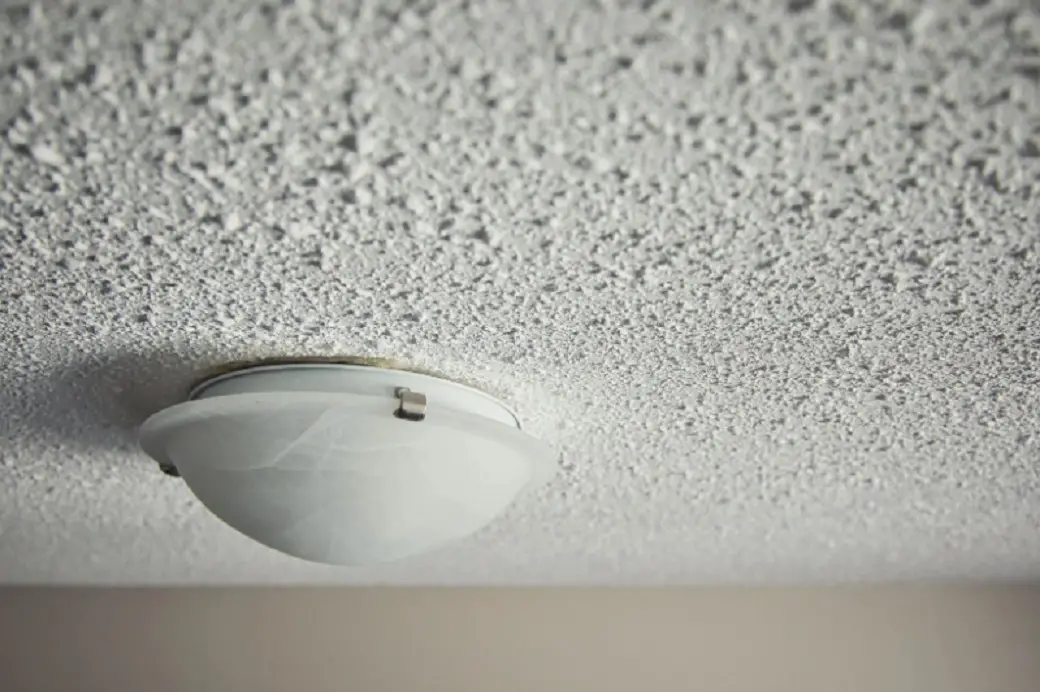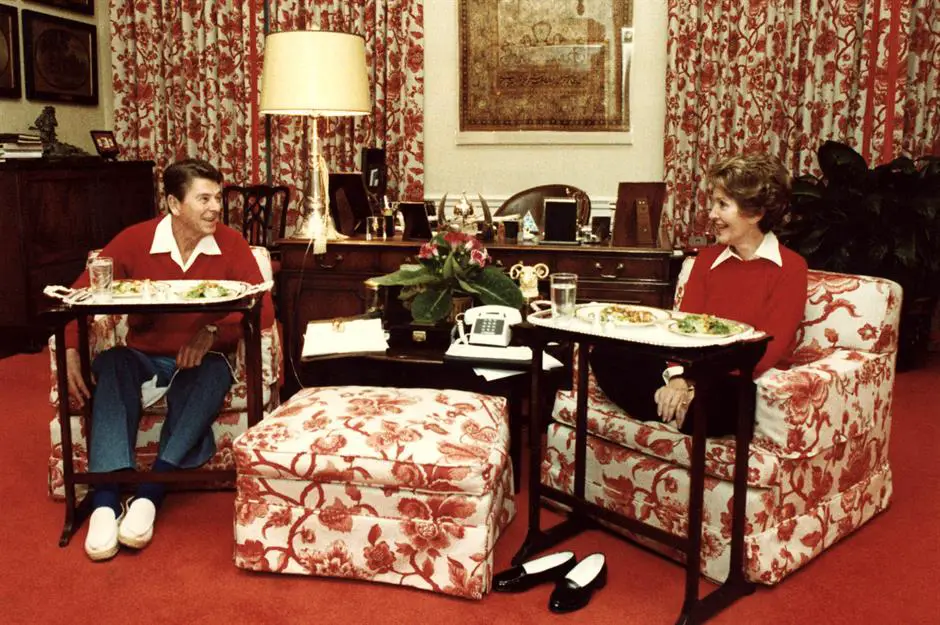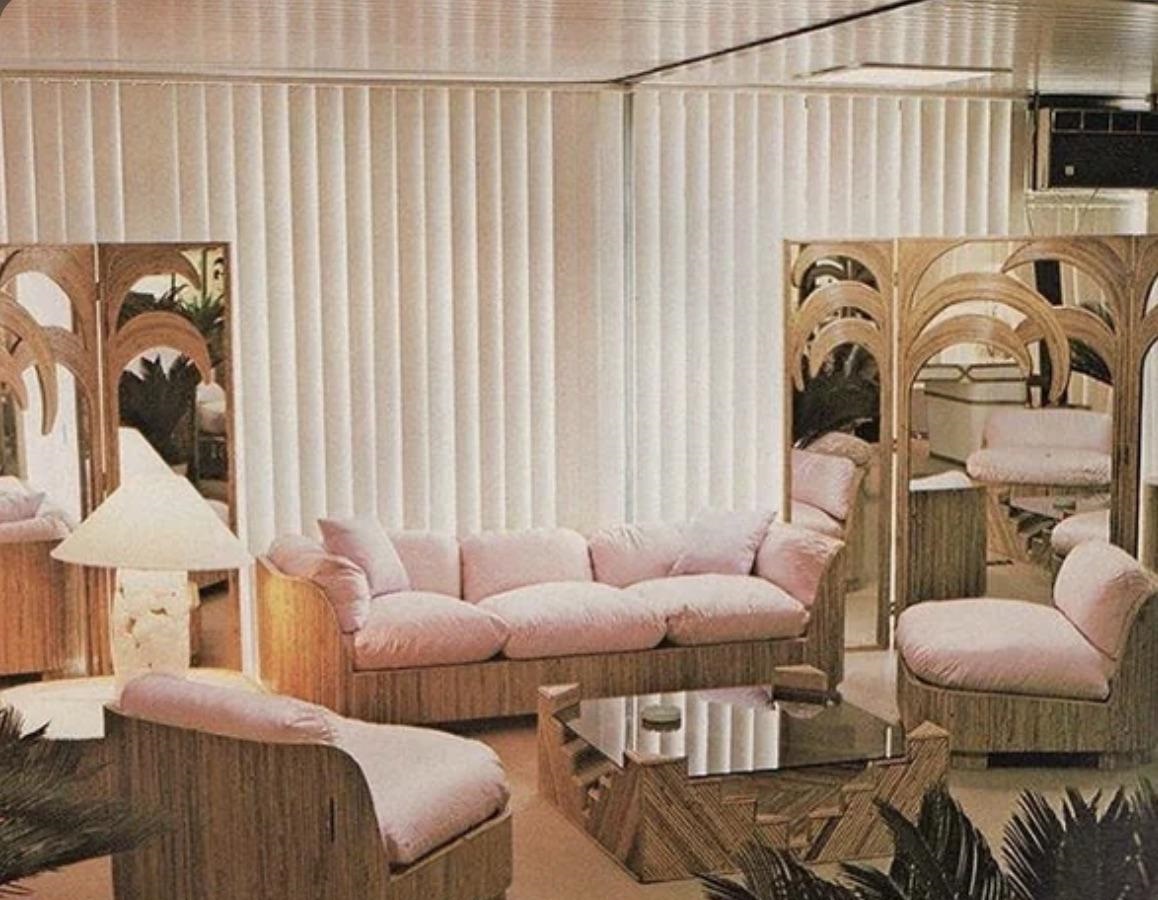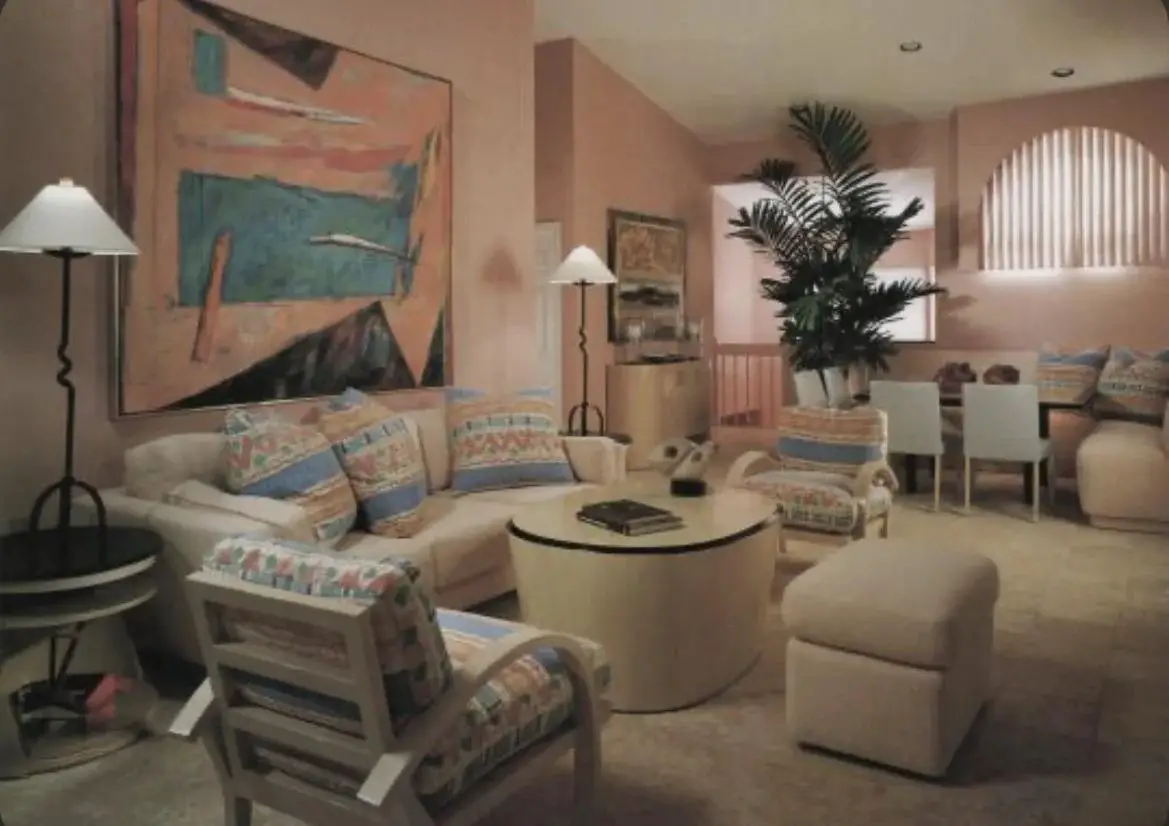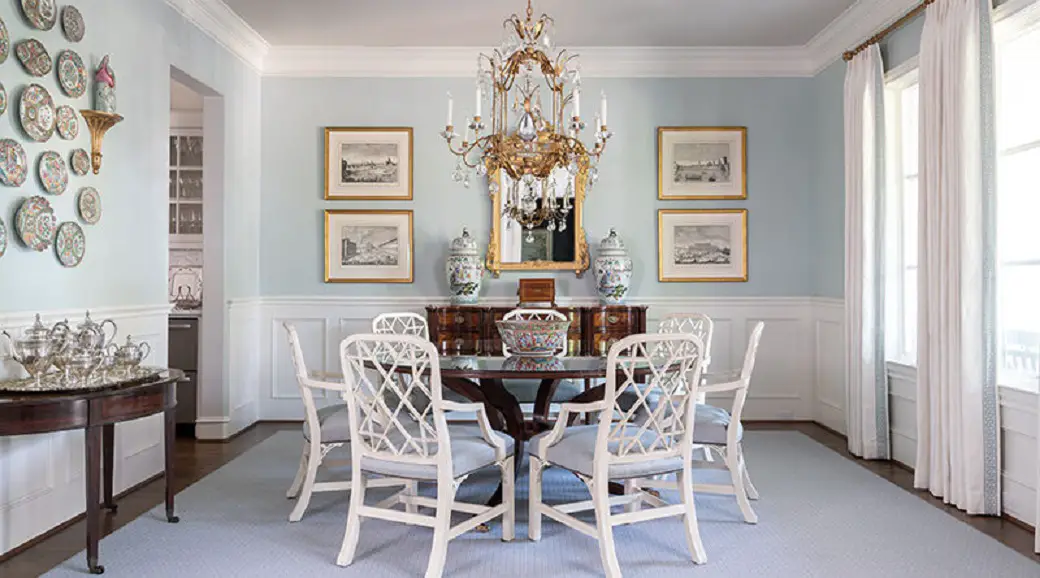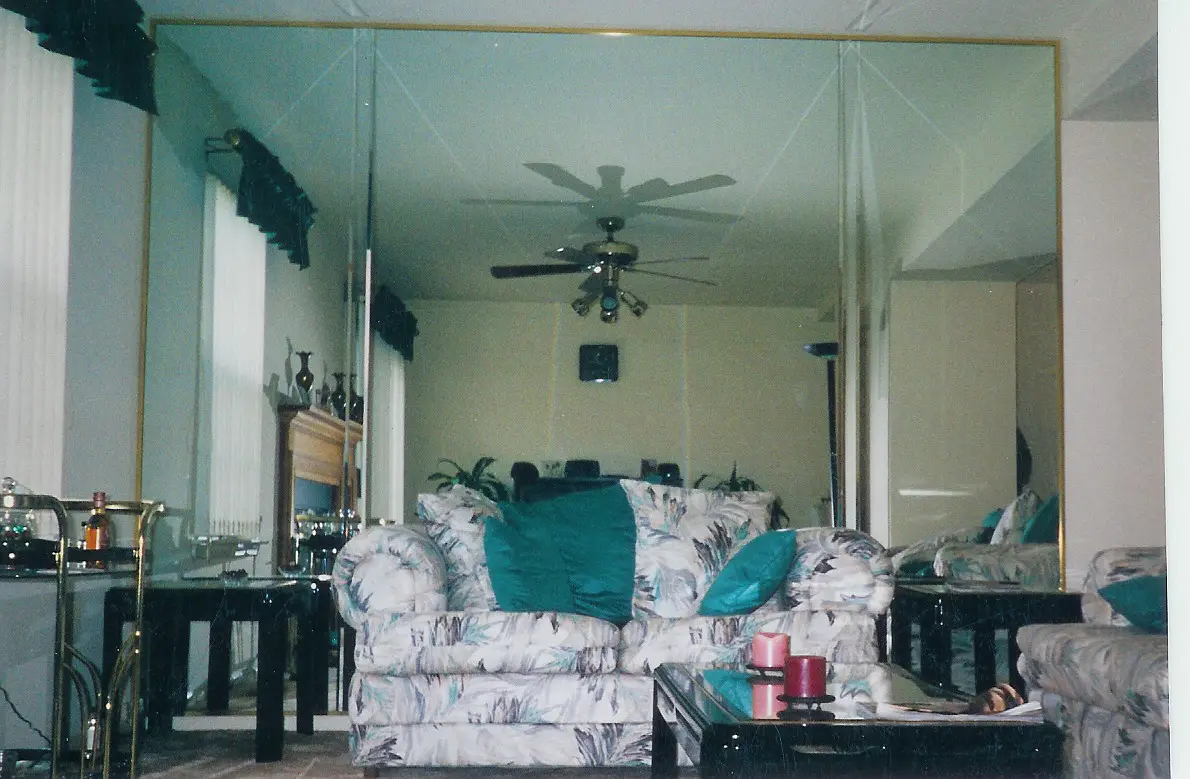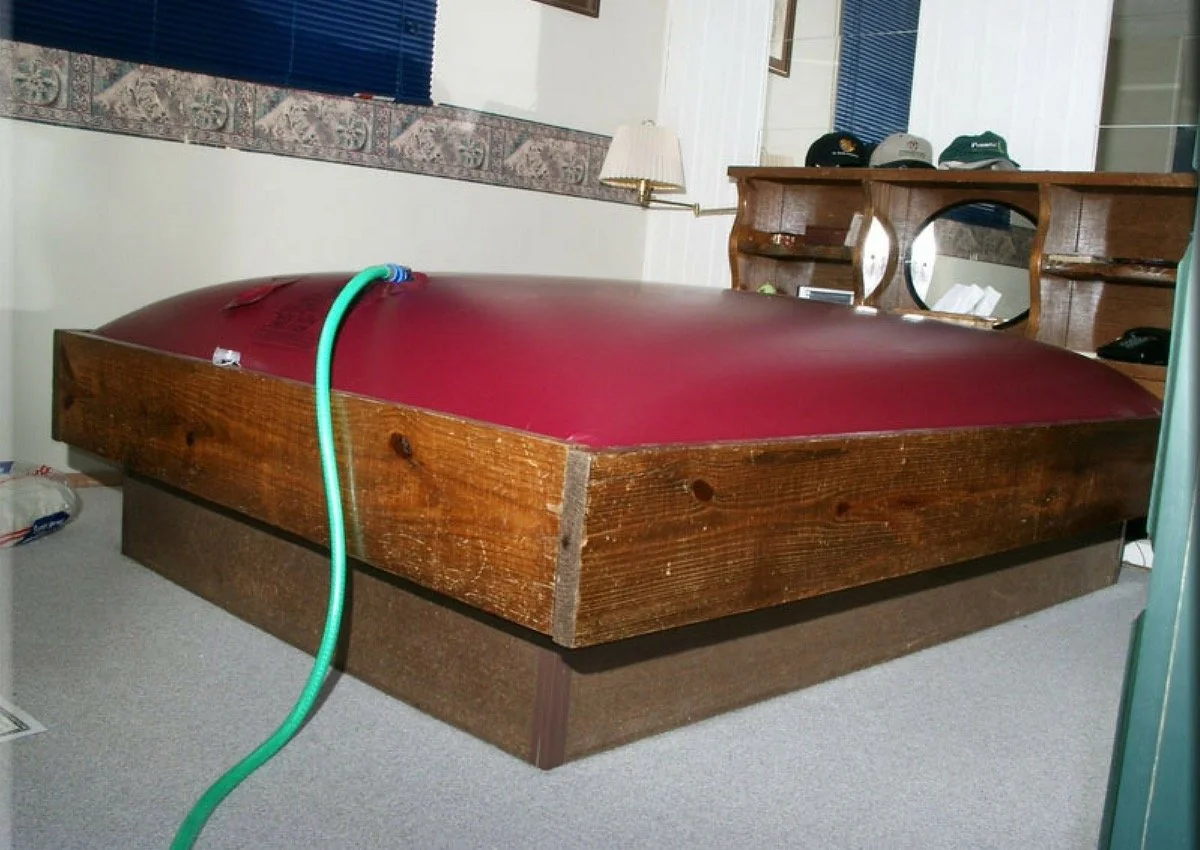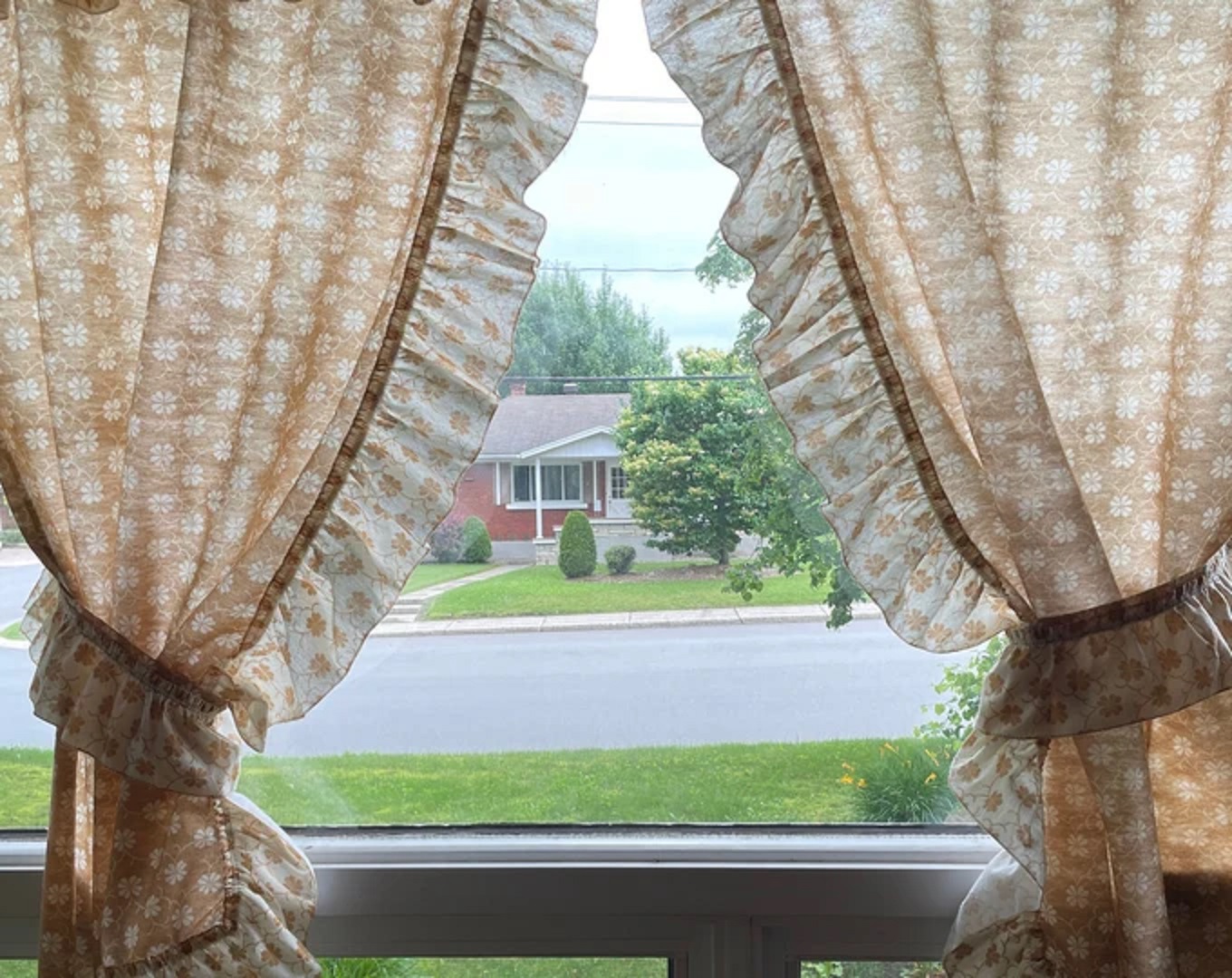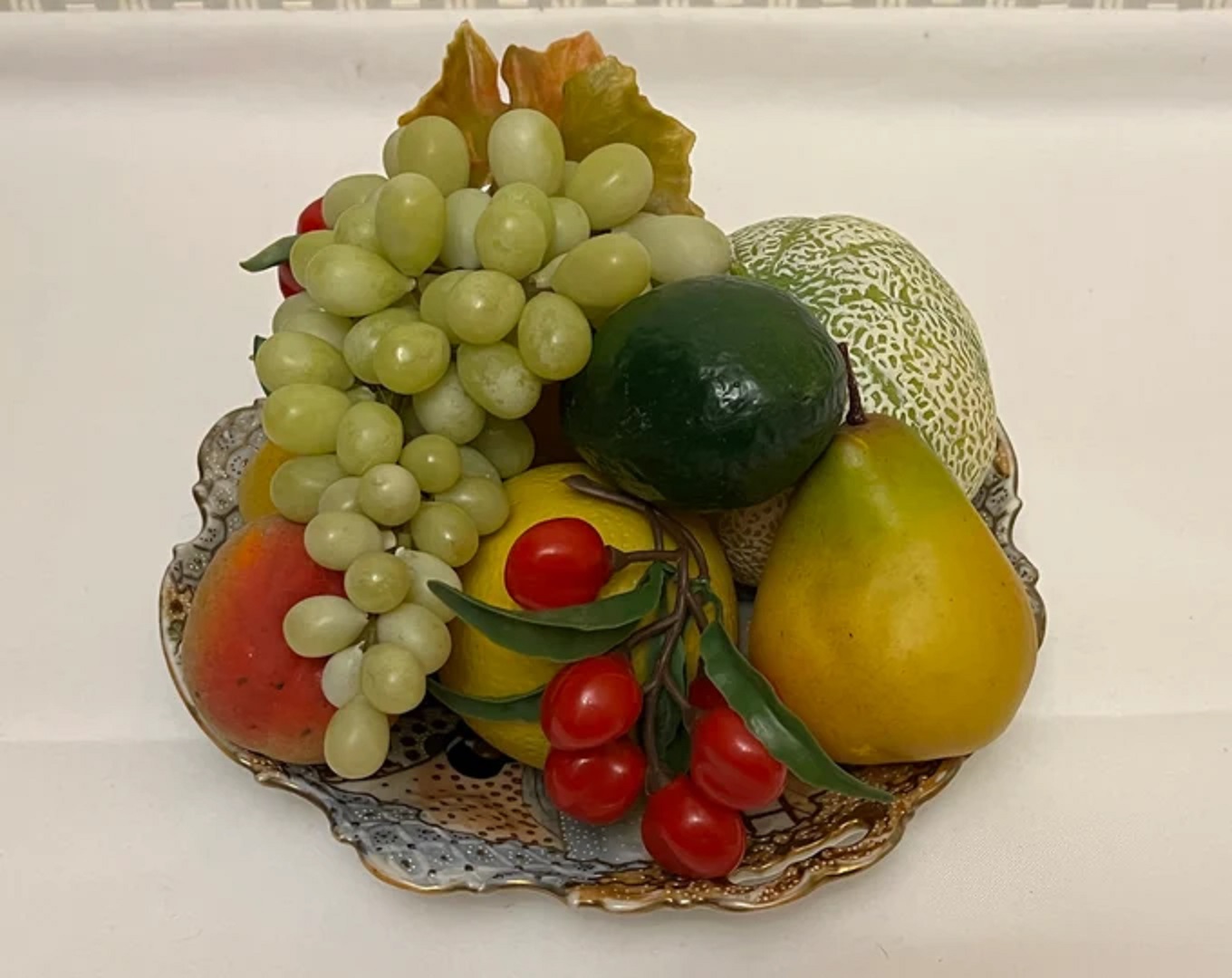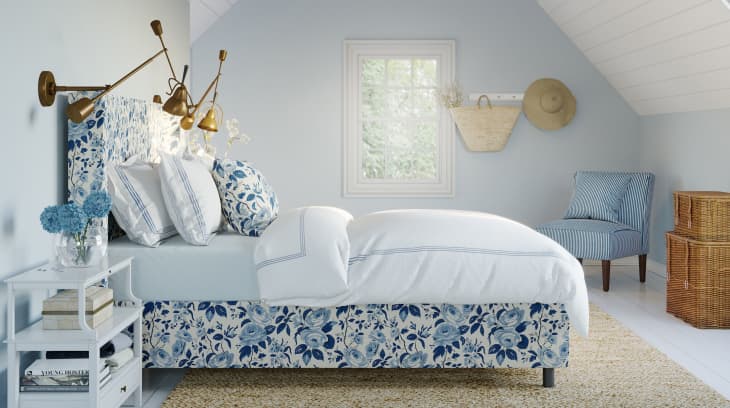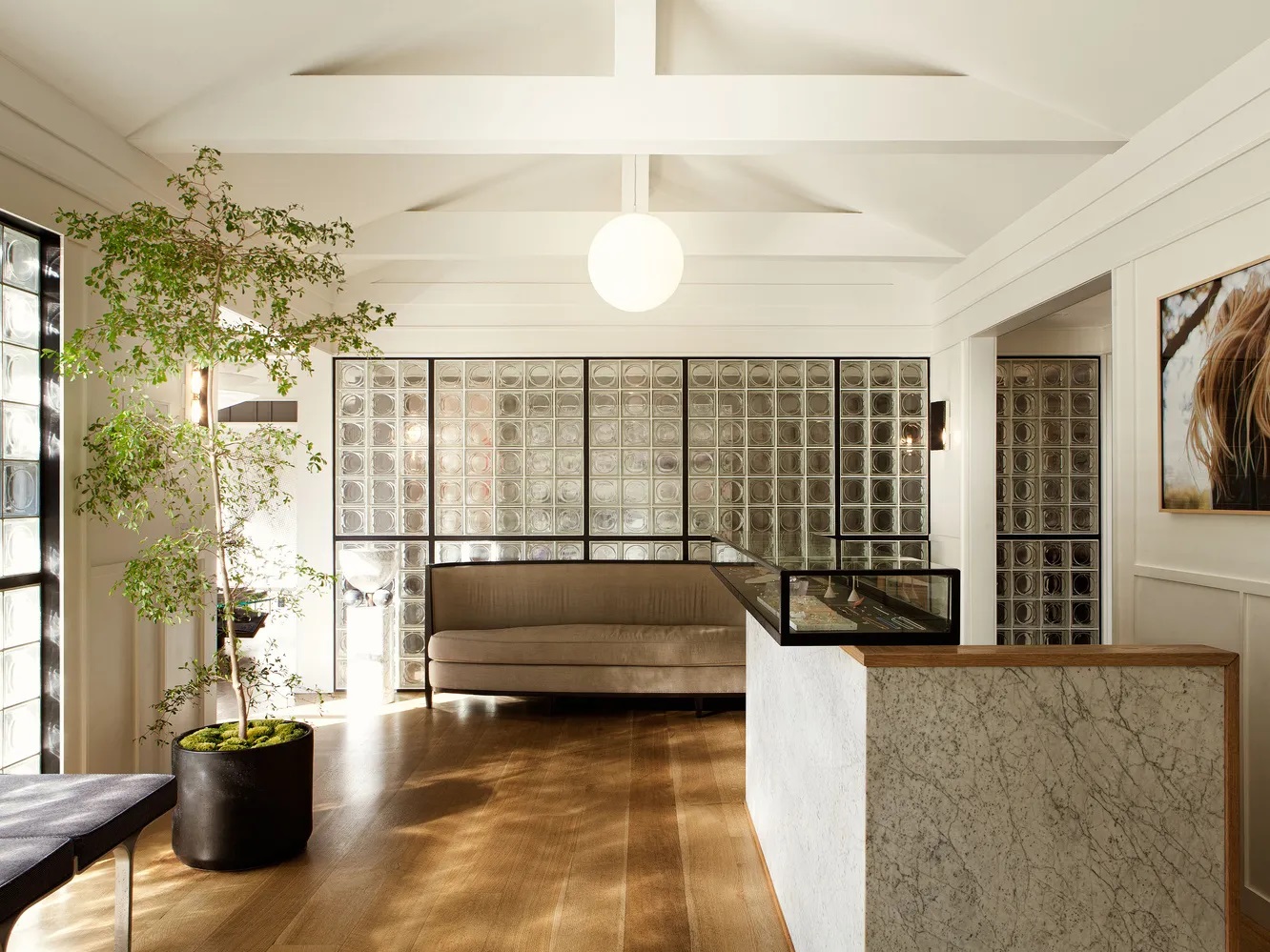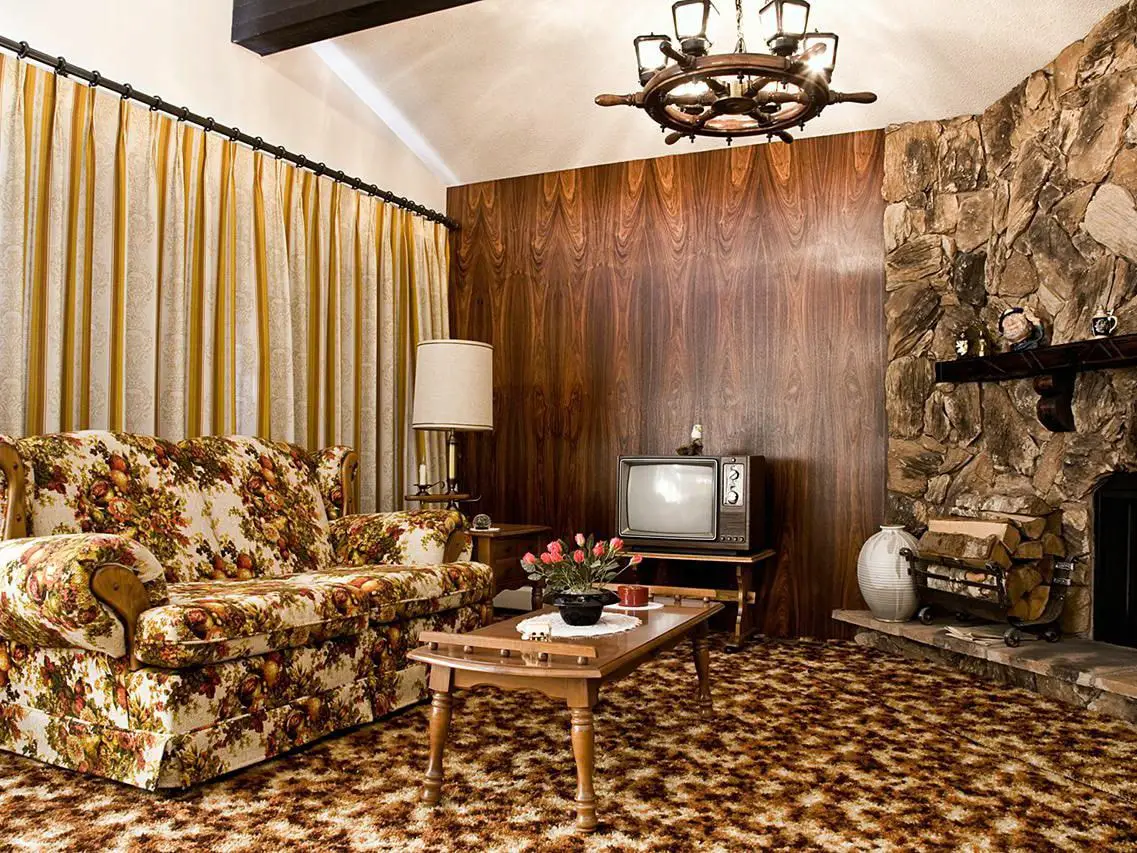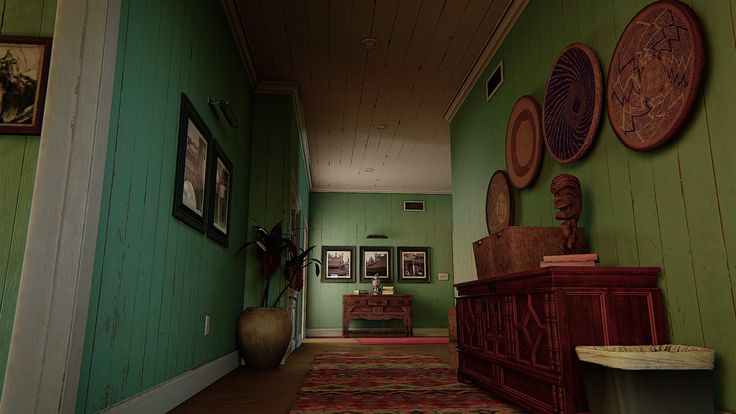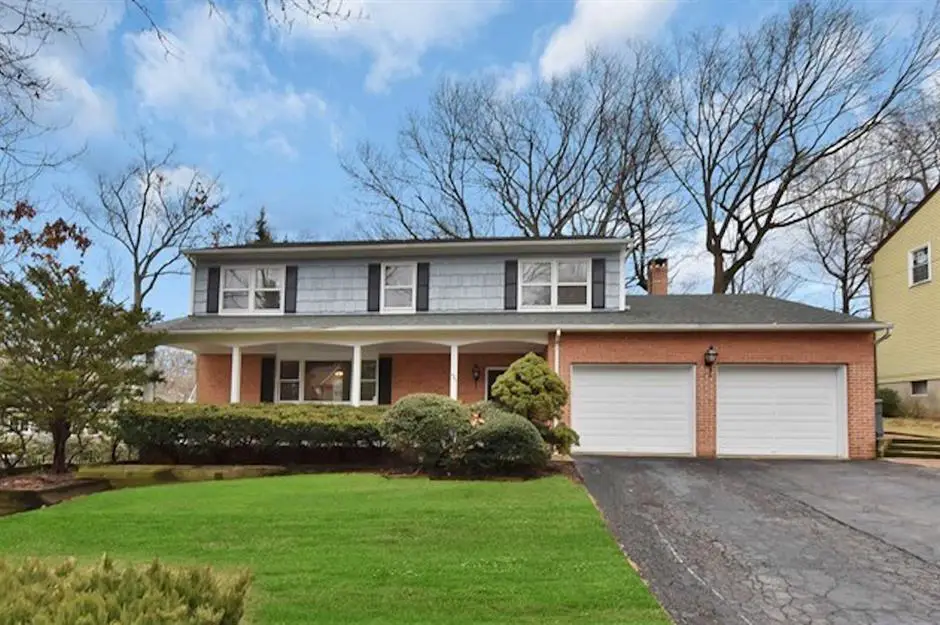The 1980s were a bold and eclectic decade for home design, but not every trend has aged well. From excessive pastels to overwhelming patterns, some choices were best left in the past. Let’s take a look at 12 home design and decor trends from the 80s that would make us cringe today!
1. Carpeted Bathrooms
Nothing says questionable design choices quite like plush carpeting in a moisture-heavy bathroom. Not only was it a nightmare to clean, but it also became a breeding ground for mold and mildew. The idea of stepping out of the shower onto a damp, bacteria-ridden carpet is enough to make anyone shudder, and the lingering musty odors were nearly impossible to eliminate.
2. Popcorn Ceilings
These textured ceilings were everywhere in the 80s, but today, they’re considered an eyesore. Difficult to clean and prone to trapping dust, many homeowners have opted to remove them in favor of smooth, modern finishes. Additionally, older versions sometimes contained asbestos, making removal a necessary but costly endeavor that requires professional handling.
3. Floral Everything
From wallpaper to couches and even carpets, excessive floral patterns dominated 80s decor. While florals can be elegant in moderation, the decade’s obsession with oversized blooms now feels overwhelming and outdated. Instead of feeling cozy, many rooms ended up looking like a chaotic explosion of flowers, making the decor feel cluttered and visually exhausting.
4. Vertical Blinds
Often found in homes with large sliding doors, these clunky, plastic blinds were notorious for breaking easily and creating an uninspired, office-like atmosphere. Their tendency to tangle and collect dust made them even less desirable over time. Not to mention, they often made an annoying clattering sound when touched by even the slightest breeze.
5. Pastel Overload
Peach, mint green, and dusty rose covered everything from walls to furniture. While pastels can be charming in small doses, the 80s took it to an extreme, making entire rooms look washed out. The result was often a space that lacked contrast, depth, and any real personality, leaving rooms looking overly saccharine and lifeless.
6. Brass Fixtures Everywhere
Brass was the metal of choice in the 80s, appearing in everything from light fixtures to bathroom faucets. Though brass has made a comeback in more refined finishes, the shiny, yellow-gold version of the 80s is best left behind. It often clashed with other decor elements, making interiors look gaudy rather than elegant, and tarnished easily over time.
7. Mirrored Walls
A staple of 80s glam, full mirrored walls were meant to make spaces feel larger. Instead, they often ended up looking tacky and dated, not to mention being a hassle to keep spotless. They also gave rooms an unintended funhouse effect that many found unsettling, making them more of a distraction than a stylish choice.
8. Waterbeds
Considered the ultimate luxury in the 80s, waterbeds have mostly disappeared due to their impracticality. Leaks, lack of proper back support, and difficulty in moving made them more trouble than they were worth. What once seemed futuristic and indulgent quickly became a regrettable fad, and many users found the constant motion more annoying than relaxing.
9. Ruffled Window Treatments
Heavy, frilly curtains with multiple layers of ruffles were a popular window treatment, but today’s design sensibilities lean toward sleek, minimalist drapes or simple blinds. The excessive fabric often made rooms feel stuffy and overdecorated. They also tended to collect dust and required constant upkeep to maintain their intended look.
10. Fake Fruit and Ivy Decor
Plastic grapes, ceramic bananas, and artificial ivy draped over kitchen cabinets were once considered stylish. Now, they’re viewed as dust collectors that add unnecessary clutter. Instead of a lively touch, they often made kitchens and dining rooms feel artificial, outdated, and completely devoid of natural beauty.
11. Over-the-Top Chintz
Chintz fabric, often featuring busy floral prints, covered sofas, chairs, and even walls. The matchy-matchy style was once trendy but now feels excessive and outdated. What was intended to be charming often resulted in an overwhelming visual overload that felt more suffocating than stylish.
12. Glass Block Walls
Used to create partitions while maintaining light flow, glass block walls were a staple in 80s homes. Though they had a futuristic feel at the time, they now scream retro in the worst way. Their bulky presence made spaces feel more enclosed rather than open and airy, and their maintenance often proved to be more cumbersome than their aesthetic value justified.
13. Brown Everywhere
From wood-paneled walls to brown carpets and furniture, the 80s had an obsession with this dreary color. Instead of creating a warm, cozy feel, it often made rooms look dark, heavy, and outdated. The lack of color variation left many interiors feeling dull and lifeless, draining the energy from the space rather than enhancing it.
14. Too Many Hallways
Many 80s homes featured an excessive number of hallways, making floor plans feel unnecessarily complex and disjointed. Instead of open, flowing spaces, homeowners were left navigating a maze of narrow corridors. This design choice often made homes feel more confined and less inviting, adding a sense of separation rather than cohesion.
Final Thoughts
While some 80s trends have made a stylish comeback, others remain firmly in the cringe-worthy category. If your home still has one of these relics, it might be time for a refresh! After all, design evolves, and thankfully, so do our tastes. Updating your home’s decor to reflect modern trends can make it feel more inviting, functional, and aesthetically pleasing.

